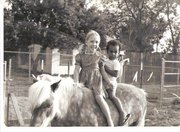
collage by author
Children of same-sex couples
I recently I read this. It has to do with the birth certificates of children of same-sex couples. The Iowa Supreme Court has ruled that both parents in a married same-sex couple must be on a child’s birth certificate. In the past, Iowa’s Department of Public Health has insisted on listing a biological parent on these birth certificates. The court now says that practice is unconstitutional.
Adoptees
I have some personal experience with Iowa’s bureaucracy regarding birth certificates. In 1990 I began to search for the son I had placed for adoption 20 years earlier. I wrote several letters to the Iowa Department of Human services, asking them to provide me with the original birth certificate for my son. I knew this birth certificate would provide no identifying information that would aid in my search for him. However, I viewed it as an empowerment exercise. My son had been taken from me. And they erased the evidence. I wanted someone to acknowledge the wrong. And the erasure of it.
Silenced for two decades by shame, I came out of my closet after the birth of my third child. I wanted the state of Iowa, at the very least, to acknowledge that the birth of my son had taken place. I had my daughters’ birth certificates. And now I wanted my son’s. My name was on it. A legal document. Wasn’t I entitled to it?
The interesting thing here–the thing that relates to the court decision above— is that my son’s biological father’s name did not appear on the birth certificate. The social worker advised me not to name the father of my baby—to protect his reputation. My name, however, would most definitely be on the birth certificate. And so, there you have it. A birth certificate without the names of both parents.
Birth certificate identity crisis
What is a birth certificate exactly? Is it a certificate of ownership? Is it a legal record of birth? A documentation of parentage? What kind of parentage? How many birth certificates can a person have? Can the people whose names are on it have a copy of it?
I did not succeed in obtaining a copy of my son’s original birth certificate even though it has my name on it. Even with the intercession of my doctor and a verifiable need to pass on medical information to my son, the only response from the Iowa Department of Human Services was that “there were no records pertaining to my inquiries.”
And what about these children of same-sex couples? What are their rights regarding knowledge of their biological parentage?
Adoption registry
And….there is this:
Effective July 1, 1999, Iowa law enables adoptees, their “birth parents,” and their blood-related brothers and sisters to find each other if the birth is registered with the State of Iowa. The “Mutual Consent Voluntary Adoption Registry” was established in order to match those persons requesting that their identity be revealed to registrants “matching” information concerning an adult adoptee. All information provided to the registry is confidential and revealed only in the event that an appropriate match is made and the parties have been notified of the match. A $25 fee in U.S. funds and a certified copy of the applicant’s (?!) birth certificate must be submitted with each consent application.
I’m trusting the instructions are a bit oversimplified. Because surely they don’t expect birthparents to supply a birth certificate. We know that’s impossible.






